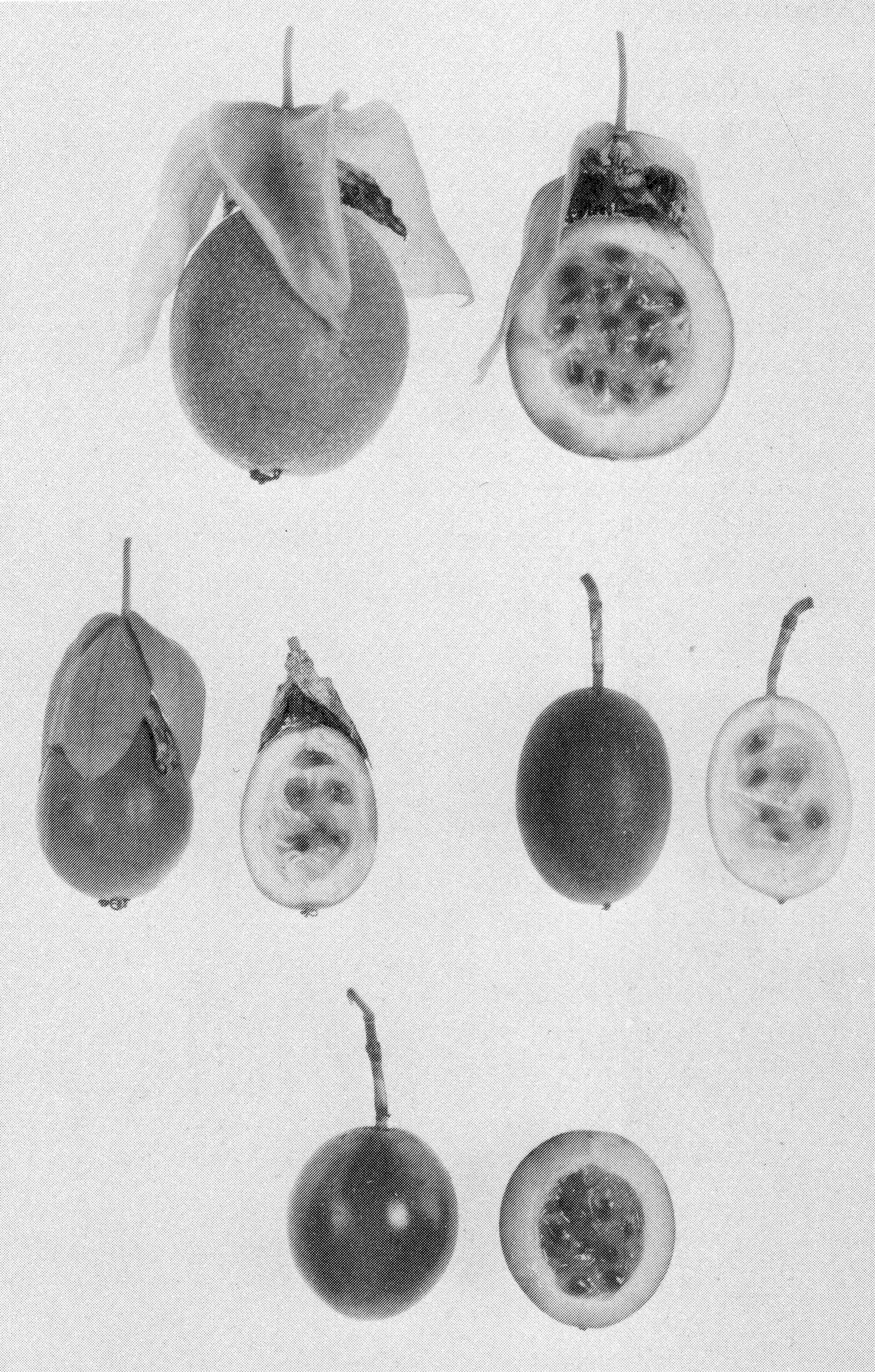|
Description: Vine. Propagation by seed, cuttings. Fruit ellipsoid, 5-8 cm long, 4-5 cm in diameter, solitary; external color greenish, yellow, or orange; internal color white. Utilization: Arils eaten fresh, in beverages, desserts. Flavor sweet; limited appeal. Little potential for expanded cultivation. References: Fouqué 1974, Martin and Nakasone 1970, Popenoe 1939. Passiflora maliformis L. Common names: sweet calabash (English); curuba, granadilla de hueso, parcha cimarrona (Spanish); liane A. agoutis, pomme calebasse (French). Origin: West Indies, South America. Distribution: Limited introduction elsewhere in Tropics but common only in area of Origin. Cultural requirements: Warm, wet tropical climate. Description: Vine. Propagation by seed, cuttings. Fruit production in 1-2 years from seed, less than 1 year from cuttings. Fruit 3.5-5 cm in diameter; external color greenish, yellow orange; internal color yellowish orange. Utilization: Arils eaten fresh, in beverages, desserts. Flavor sweet; moderate appeal. Limited potential for wider cultivation. References: Fouqué 1974, Martin and Nakasone 1970. Passiflora quadrangularis L. Common names: giant granadilla (English); granadilla, badea (Spanish); barbadine (French); maracujá açu, maracujá grande, maracujá mamao (Portuguese). Origin: Tropical America. Distribution: Pantropic. Cultural requirements: Hot, wet tropical lowlands. Description: Vine. Propagation by seed, cuttings. Fruit production in 1-2 years from seed, less than 1 year from cuttings. Fruit irregularly shaped. 10-30 cm long, 10-15 cm in diameter; external color yellowish green, mesocarp white, arils yellow. Utilization: Entire immature fruit eaten as a cooked vegetable. Pulp eaten fresh, in desserts. Arils eaten fresh, in beverages, desserts. Flavor subacid, somewhat insipid. Widely cultivated. Moderate potential for expansion. References: Araque 1963, Fouqué 1974, Martin and Nakasone 1970. |

Figure
26. Passiflora maliformis, one of many edible species.
Passiflora serrato-digitata L. Common names: tagua (English); tagua-tagua (Spanish); pomme a agoutis, pomme-liane manicou (French); maracujá do mato, maracujá pedra (Portuguese). Origin: West Indies, South America. Distribution: Tropical America; introduced elsewhere but not well known. Cultural requirements: Warm tropical lowlands. Description: Vine. Propagation by seed, cuttings. Fruit 4-5 cm in diameter; external color yellow, internal white. Utilization: Arils eaten fresh, in beverages, desserts. Flavor sweet; low appeal. Little potential for further cultivation. References: Fouqué 1974, Martin and Nakasone 1970. |